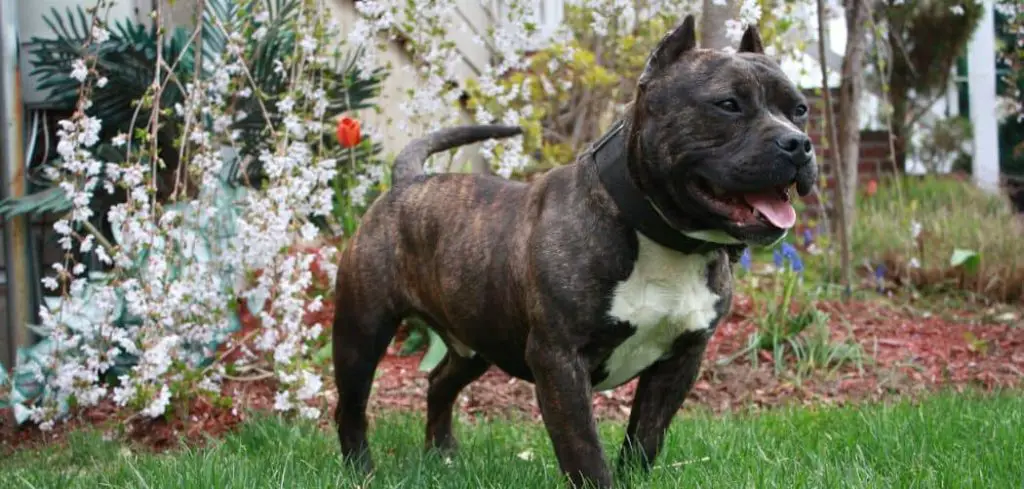When an old dog is not eating or drinking but appears otherwise normal, it can be puzzling and concerning.
While the dog may seem alert and playful, refusal to eat or drink can quickly lead to dehydration, weight loss, and other health complications if not addressed.
We outline the common reasons why an old dog may not be eating or drinking but acting normal, what you can do at home, and when to seek veterinary help.
Old Dog Not Eating or Drinking but Acting Normal — Why It Happens
An old dog that is not eating or drinking but still acting normal may be in the very early stages of an illness, experiencing mild gastrointestinal upset, dental pain, mild organ dysfunction, or simply being picky about food. Sometimes changes in routine, stress, or a recent diet change can also cause temporary refusal of food and water.
While the dog may seem fine otherwise, skipping meals or refusing water in older dogs should never be ignored, as it can signal an underlying issue that may worsen quickly.

Old Dog Not Eating or Drinking but Acting Normal: Common Causes
Mild Gastrointestinal Upset
Occasional stomach upset from dietary changes, minor infections, or indigestion may reduce appetite temporarily.
Dogs may drink water to compensate but still refuse food. Signs include mild lethargy, occasional vomiting, or soft stools. Home care may resolve minor issues, but persistent refusal warrants veterinary evaluation.
Read more: Old Dog Not Eating or Drinking (Here’s Why)
Dental Problems
Dental disease, including tooth decay, gingivitis, or oral pain, can make eating uncomfortable without affecting overall activity.
Dogs may continue drinking water but avoid food due to mouth discomfort. Signs include bad breath, drooling, or reluctance to chew. Veterinary dental care can restore comfort and encourage eating.
Mild Organ Dysfunction
Early-stage kidney, liver, or pancreatic disease may reduce appetite or drinking without causing overt lethargy.
Dogs may appear otherwise normal while showing subtle signs such as occasional vomiting, softer stools, or mild dehydration. Early veterinary assessment helps detect and manage these conditions before they progress.
Stress or Environmental Changes
Changes in routine, environment, or household dynamics may temporarily reduce food and water intake.
Dogs may continue normal activity but eat less or skip meals. Signs include anxious behavior, pacing, or altered sleeping patterns.
Maintaining a stable environment and consistent feeding schedule can encourage normal eating habits.
Medication Side Effects
Certain medications for chronic conditions can reduce appetite or alter thirst.
Dogs may appear alert and active while avoiding food. Monitoring and consulting your veterinarian about potential side effects can help manage intake while adjusting treatments.
Minor Illness
Mild infections or viral illnesses may reduce appetite without affecting energy levels.
Dogs may continue to drink or play intermittently but show subtle signs like soft stools, occasional vomiting, or mild lethargy. Veterinary evaluation can rule out serious underlying disease.
What to Do If Your Old Dog Is Not Eating or Drinking but Acting Normal
Provide small, palatable meals and ensure water is readily available.
Encourage eating by offering soft, bland foods or warming meals slightly to enhance aroma.
Maintain a calm environment and monitor closely for changes in appetite, drinking, or behavior.
Track intake, stool consistency, and any signs of discomfort. If the dog continues to refuse food or water for more than 24 hours, consult your veterinarian.
When to Call or Visit Your Vet
Seek veterinary care if your dog:
Refuses food or water for more than 24–48 hours
Shows subtle signs of illness such as vomiting, diarrhea, or mild lethargy
Exhibits oral discomfort, drooling, or bad breath
Has changes in weight, hydration status, or activity levels
Even if the dog seems otherwise normal, prolonged refusal can quickly lead to dehydration, weight loss, or worsening underlying health conditions.
Read more: Old Dog Not Eating (Causes and what to do)
Key Takeaway
When an old dog is not eating or drinking but acting normal, subtle underlying issues may be at play, including mild illness, dental pain, or stress.
Home care includes offering small, palatable meals, accessible water, and monitoring behavior closely.
Persistent refusal to eat or drink requires veterinary evaluation to ensure dehydration, malnutrition, or underlying disease are addressed promptly, keeping your senior dog healthy and comfortable.
